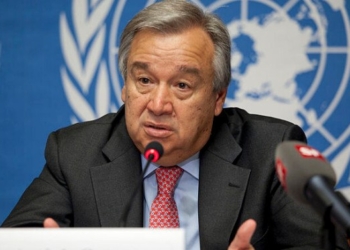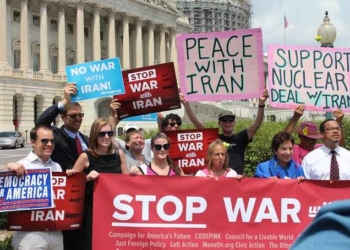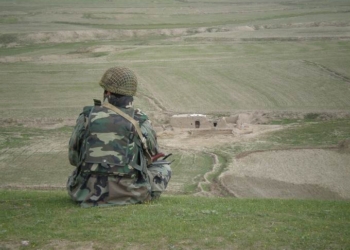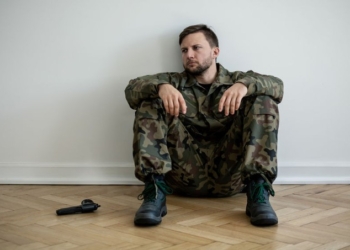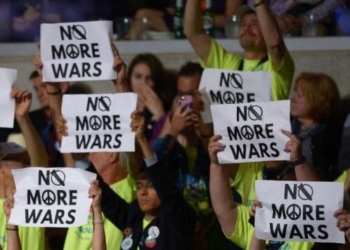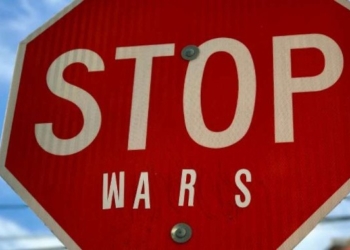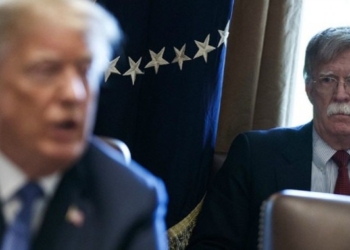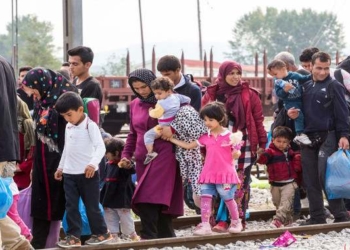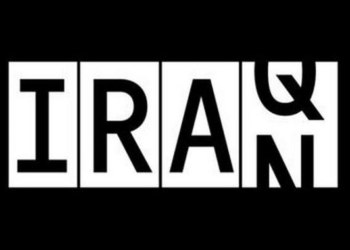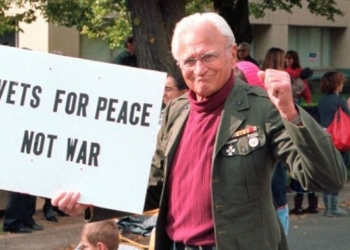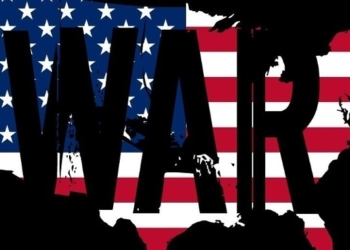Military
As Global Military Spending Hits Nearly $2 Trillion, These Weapons Are Useless Against Biggest Threats We Face
The U.S. military cannot fight a pandemic. It is not a war, it's a public health crisis. And this isn't...
Read moreUN Chief Calls for Global Ceasefire Amid “Absolutely Devastating” Pandemic
The head of the United Nations has issued a passionate appeal for a global ceasefire to take effect across the...
Read moreSenate Passes War Powers Resolution to Stop Trump From Launching ‘Illegal’ Attack on Iran
The Senate on Thursday passed a War Powers Resolution aimed at preventing President Donald Trump from launching military action against...
Read moreJust 3% of What the US Spends Destroying Countries Could End Starvation—On the Entire Planet
Time to end wars and stop starvation
Read moreThe Real Lesson of Afghanistan Is That Regime Change Does Not Work
The underlying fault is not in how the U.S. tries and fails to reconstruct societies destroyed by its "regime changes,"...
Read moreCasualties of War: Military Veterans Have Become America’s Walking Wounded
Despite the fact that the U.S. boasts more than 20 million veterans who have served in World War II through...
Read moreThe So-Called War on Terror Has Killed Over 801,000 People and Cost $6.4 Trillion: New Analysis
The so-called War on Terror launched by the United States government in the wake of the Sept. 11, 2001 attacks...
Read moreHelping Students Keep Their Humanity by Not Signing Up for War
We Are Not Your Soldiers brings exposure of imperial wars to a generation of youth largely unaware of the crimes...
Read moreNation That Says It Can’t Afford Medicare for All Has Spent $5.6 Trillion on War Since 9/11
The Costs of War Project at Brown University's Watson Center says the $5.6 trillion figure—which covers the conflicts in Iraq,...
Read more‘Bolton Is Desperate to Start a War’: US Issues Warrant to Seize Iranian Oil Tanker
After the Gibraltar Supreme Court rejected the Trump administration's effort to stop the release of an Iranian oil tanker seized...
Read moreImperialism Made Crisis of Migrants and Refugees
For the last 18 years, since the new era of war and occupation began, there has been no end to...
Read moreHouse Passes Amendments to End War Authorizations, Preemptively Defund Iran War
Bill supporters argued that Iran is just too big of a war to get sucked into without Congress having any...
Read moreUS Army Tweet Inadvertently Triggers Responses Revealing ‘Real, Painful, and Horrifying Human Costs of War’
"How has serving impacted you?" the Army asked. The responses poured in.
Read moreTo Counter Trump’s Hawks, CodePink’s Medea Benjamin Says It’s Time to “Build Up an Anti-War Movement Again”
Peace activist Medea Benjamin said Wednesday that the current political moment "is a time where we have to build up...
Read moreJimmy Carter: US ‘Most Warlike Nation in History of the World’
Former president Jimmy Carter, the only US president to complete his term without war, military attack or occupation has called...
Read more



